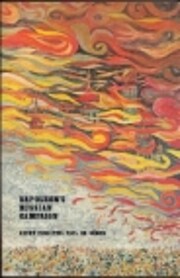

Click on a thumbnail to go to Google Books.
|
Loading... Napoleon's Russian Campaign. (edition 1976)by Count Phillipe-Paul de Segur, J. David Townsend (Translator), Peter Gay (Introduction)Philippe-Paul de Ségur puts humanity back into an event where we get distracted by the sheer number of the dead. I've read histories now where historians estimate the size of The Grande Armée to have been anywhere from 300,000 and 600,000 men on the way to Moscow; survivors of the campaign are estimated between 30,000 to 50,000. That's a lot of zeroes, and a lot of rounding, and a lot of missing stories of human happenings. Maybe the best possible representation of the quantitative loss was conceived by Charles Joseph Minard in his famous graphic, here: https://en.wikipedia.org/wiki/File:Minard.png Ségur, though, made me understand what it was like to be there: “The road was constantly running through swampy hollows. The wagons would slide down their ice-covered slopes and stick in the deep mud at the bottom. To get out they had to climb the opposite incline, thickly coated with ice on which the horses’ hoofs, with their smooth, worn-out shoes, could find no hold. One after another they slipped back exhausted — horse and drivers on top of each other. Then the famished soldiers fell upon the fallen horses, killed them and cut them in pieces. They roasted the meat over fires made from the wrecked wagons, and devoured it half cooked and bloody.” An amazing book. An unexpectedly moving piece of history. As Napoleon's aide-de-camp during the Russian campaign, Segur was present during the battles and the disastrous retreat, as well as the discussions and decision-making that brought on the destruction of the Grande Armee without ever losing a battle to the Russians. We feel Napoleon's uncertainty about whether to advance on Moscow and his consternation at the ruthless and to him (and me) barbarous lengths to which the Russian elite were prepared to go to avoid defeat, sacrificing large sections of their own population and setting fire to their capital, all the while blaming the French and inspiring fear and hatred in their subjects. This misrepresentation of his character and intentions seemed particularly to get under Napoleon's skin. The relative chivalry of the French stands in stark contrast, and one cannot help but admire the skill and daring of their generals in the face of such appalling and constantly worsening odds. Segur is frequently generous with his praise of the Russians, especially Barclay, for sticking to his tactics. However, it is the heroism of so many of the doomed French which sticks in the mind, as well as the humanity of Napoleon, whom we are accustomed to regard more as an icon of good or evil. He was a much greater, and in many ways better, man than his eventual conquerors. An interesting side note. The number of Scots involved is surprising. - Barclay was the overall Russian commander, until removed due to xenophobic back biting. It was only after the war that it was recognized that he had in fact saved Russia. On the French side, we find Lauriston and MacDonald. We Scots get everywhere! |
Current DiscussionsNonePopular covers
 Google Books — Loading... Google Books — Loading...GenresMelvil Decimal System (DDC)940.27420947History & geography History of Europe History of Europe 1453-1913 Napoleonic period 1789-1815LC ClassificationRatingAverage: (3.82) (3.82)
Is this you?Become a LibraryThing Author. |
Segur is frequently generous with his praise of the Russians, especially Barclay, for sticking to his tactics. However, it is the heroism of so many of the doomed French which sticks in the mind, as well as the humanity of Napoleon, whom we are accustomed to regard more as an icon of good or evil. He was a much greater, and in many ways better, man than his eventual conquerors.
An interesting side note. The number of Scots involved is surprising. - Barclay was the overall Russian commander, until removed due to xenophobic back biting. It was only after the war that it was recognized that he had in fact saved Russia. On the French side, we find Lauriston and MacDonald. We Scots get everywhere! (